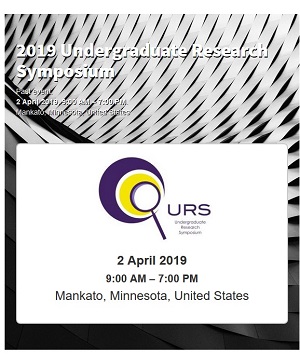Organic Label's Effect on Sensory and Hedonic Evaluation of Popcorn
Location
CSU Ballroom
Start Date
2-4-2019 2:00 PM
End Date
2-4-2019 3:30 PM
Student's Major
Family Consumer Science
Student's College
Allied Health and Nursing
Mentor's Name
Joye Bond
Mentor's Department
Family Consumer Science
Mentor's College
Allied Health and Nursing
Description
The halo effect describes a phenomenon where a label positively influences consumers' perceptions of the product. Previous research has shown organic labels influence consumer perception of product flavor, healthfulness and increases consumer willingness to buy. A study evaluating yogurt, chips, and cookies failed to find significant difference between identical products labeled “organic” and “regular”. Another study found that an organic label on wine significantly increased evaluation by consumers. Currently, there is no research regarding the halo effect on organic popcorn. The purpose of this research was to determine if there is an organic halo effect on pre-popped popcorn, specifically consumer flavor perception. In this study, 50 participants at a retail grocery store were asked to taste two identical popcorn samples. Both samples were conventionally produced by the same company. One sample was labeled “organic” and one sample was labeled “non-organic.” The participants tasted each sample and ranked their liking of the flavor on a 9-point hedonic scale where 1= “dislike extremely” and 9 = “like extremely.” Consumers were asked to provide their gender, age group and answered a question about the frequency of their organically-labeled food purchasing habits. The results of the study showed that participants liked the flavor of the “organic” popcorn significantly more (p=.018) than popcorn labeled non-organic, providing evidence there is a halo effect of an organic label on pre-popped popcorn. Further research could include evaluating if consumer education about the halo effect prior to sensory evaluation mediates the halo effect of an organic label.
Organic Label's Effect on Sensory and Hedonic Evaluation of Popcorn
CSU Ballroom
The halo effect describes a phenomenon where a label positively influences consumers' perceptions of the product. Previous research has shown organic labels influence consumer perception of product flavor, healthfulness and increases consumer willingness to buy. A study evaluating yogurt, chips, and cookies failed to find significant difference between identical products labeled “organic” and “regular”. Another study found that an organic label on wine significantly increased evaluation by consumers. Currently, there is no research regarding the halo effect on organic popcorn. The purpose of this research was to determine if there is an organic halo effect on pre-popped popcorn, specifically consumer flavor perception. In this study, 50 participants at a retail grocery store were asked to taste two identical popcorn samples. Both samples were conventionally produced by the same company. One sample was labeled “organic” and one sample was labeled “non-organic.” The participants tasted each sample and ranked their liking of the flavor on a 9-point hedonic scale where 1= “dislike extremely” and 9 = “like extremely.” Consumers were asked to provide their gender, age group and answered a question about the frequency of their organically-labeled food purchasing habits. The results of the study showed that participants liked the flavor of the “organic” popcorn significantly more (p=.018) than popcorn labeled non-organic, providing evidence there is a halo effect of an organic label on pre-popped popcorn. Further research could include evaluating if consumer education about the halo effect prior to sensory evaluation mediates the halo effect of an organic label.
Recommended Citation
Anderson, Michael; Hannah Thompson; Abeer Albakri; and Kris Olson. "Organic Label's Effect on Sensory and Hedonic Evaluation of Popcorn." Undergraduate Research Symposium, Mankato, MN, April 2, 2019.
https://cornerstone.lib.mnsu.edu/urs/2019/poster-session-B/45




